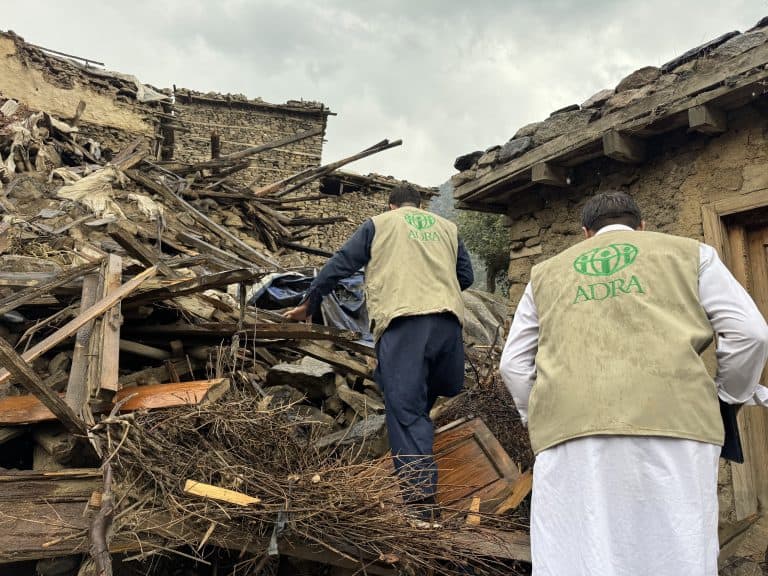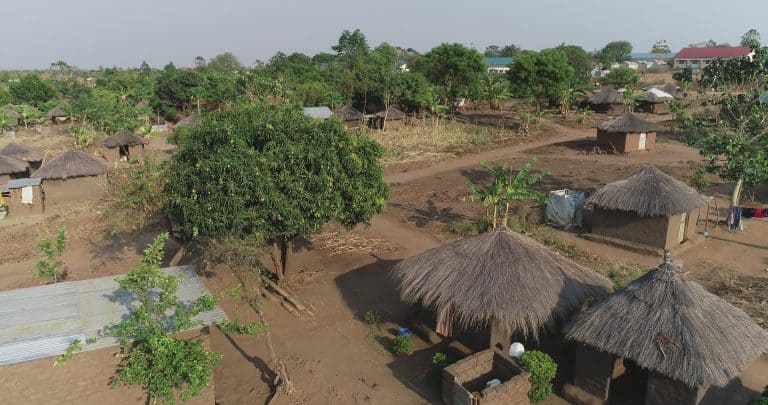
In 2021, ADRA was able to reach over 2.6 million people with water and sanitation programming globally with over $20 million spent on project activities. Water, sanitation and hygiene (WASH) is a key sector for ADRA globally, and ADRA focuses on improving access to water, sanitation and good hygiene behaviors in every region of the world, particularly for children and women.
In order to achieve Sustainable Development Goal (SDG 6), which is about clean water and sanitation for all by 2030, the current rate of progress needs to be quadrupled. Because ADRA recognizes that the lack of WASH can affect multiple aspects of life, such as health, education, gender equality, livelihoods, and environmental sustainability, ADRA works with governments, communities, the private sector, and other partners to improve access to water and sanitation services and promote good hygiene practice, primarily through multi-sectoral, integrated programming.
ADRA supports innovation, research, advocacy, and capacity building on WASH issues to address the challenges and opportunities posed by climate change, population growth and displacement, and urbanization, thereby enabling people to live healthier, happier, dignified, and more productive lives.
ADRA is very much invested in last-mile water delivery, which is aimed at the most vulnerable—most of whom live in rural areas. Throughout the Middle East and Africa, ADRA capitalizes on high sunshine hours and routinely implements solar-powered systems. Projects in Yemen, Madagascar, Sudan, Haiti, Zimbabwe, and Mozambique use this technology in very different contexts with the common goal of reliable, affordable water service powered by the sun. Across Africa, ADRA also installs and rehabilitates handpumps for small-scale, rural water supply, while building the capacity of users for their sustained operation and maintenance at the community level. In contexts like Yemen, Madagascar, and Myanmar, where the topography and water flows allow, ADRA uses gravity-fed systems to supply and convey water to communities on a 24/7 basis. Where rainfall permits, ADRA also utilizes rainwater harvesting systems where water is safely stored in rain catchment tanks, used, and managed locally by households and communities. In Sudan, ADRA supports communities to capture rainwater in haffirs during the rainy season, which can then be utilized during the dry season.
Sanitation is an often-overlooked need, but without proper sanitation, health, dignity, and productivity are severely affected. The lack of safe, dignified sanitation keeps girls out of schools. Feces is the number one contaminate of drinking water. The need is clear, but often not discussed. The topic can be uncomfortable and the result all too often is that sanitation is an afterthought. In several countries, ADRA works to promote sanitation that people not only need but also want and value through traditionally non-subsidy approaches such as Community-Led Total Sanitation (CLTS). Approaches that are acceptable to the community and leave no-one behind can also be made sustainable through market-based approaches. These approaches create jobs through supporting services and the work doesn’t stop when the user exits a well-maintained facility. The management of waste can provide benefit to the economy without endangering the environment and human health.
Good hygiene practices could transform the healthcare landscape worldwide but changing behavior in a sustained way can be challenging. Across ADRA’s sectors, Social and Behavior Change Communication is a core practice where staff continue to enhance their knowledge base; nowhere is this more evident than in hygiene promotion. Safe practices are a key element of good health and affect nutrition and cognitive development, as well as school and work attendance. ADRA has conducted applied research on Pathogen Pathways for Children Under Two Years of Age which has led to contextualized focus on improved approaches to intercepting fecal-borne disease routes for children in Southeastern Madagascar. In multiple countries, ADRA’s hygiene promotion strategies are often integrated across several of ADRA’s interventions, with focus on diverse hygiene aspects, such as hand and respiratory hygiene in Ecuador and Peru and menstrual hygiene management (MHM) in multiple countries.


Discover the incredible impact ADRA has across the world! With a presence in over 120 countries, ADRA brings new hope and positive change to countless communities in need. From disaster relief to long-term sustainable development projects, ADRA’s commitment to making a difference has inspired many to join in their efforts to create a better world. Through perseverance and compassion, ADRA has touched the lives of so many and continues to inspire us all to work towards a brighter future. Together we can make a difference.